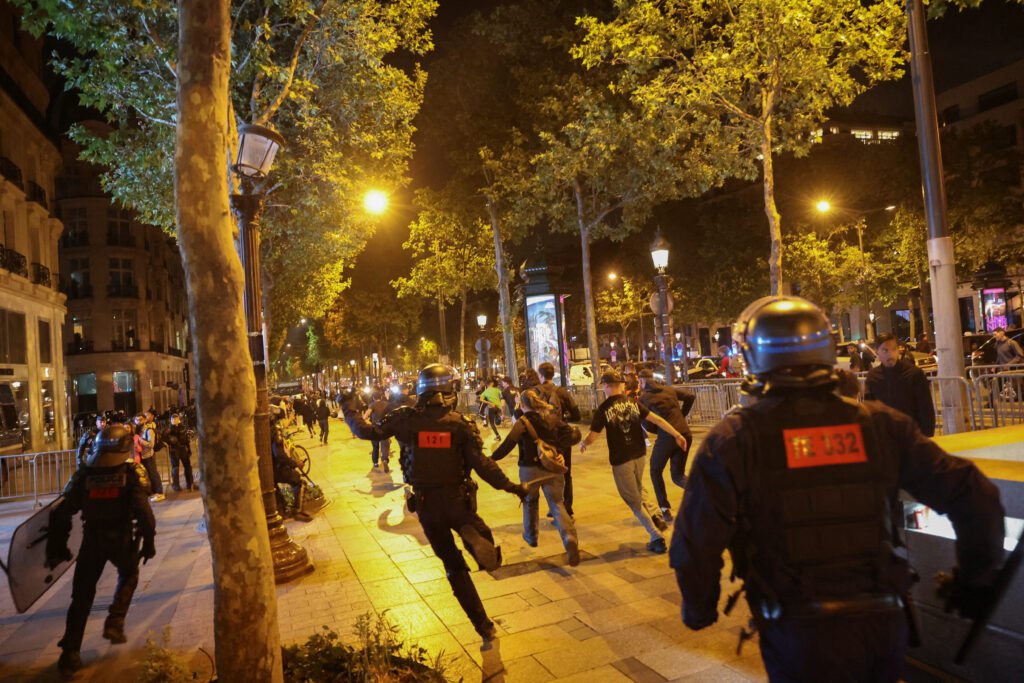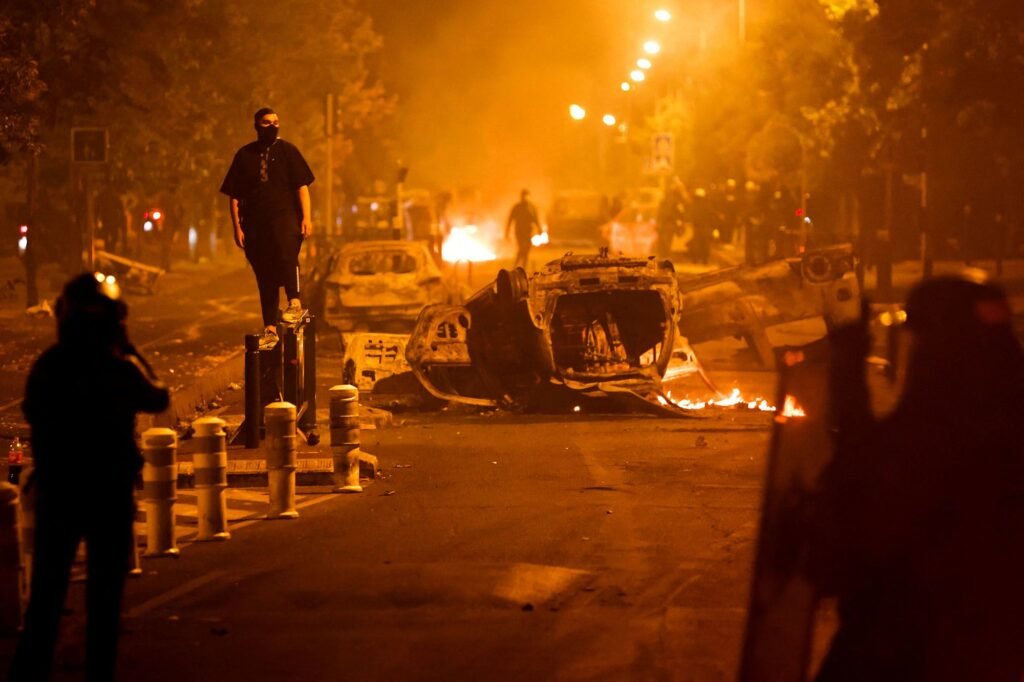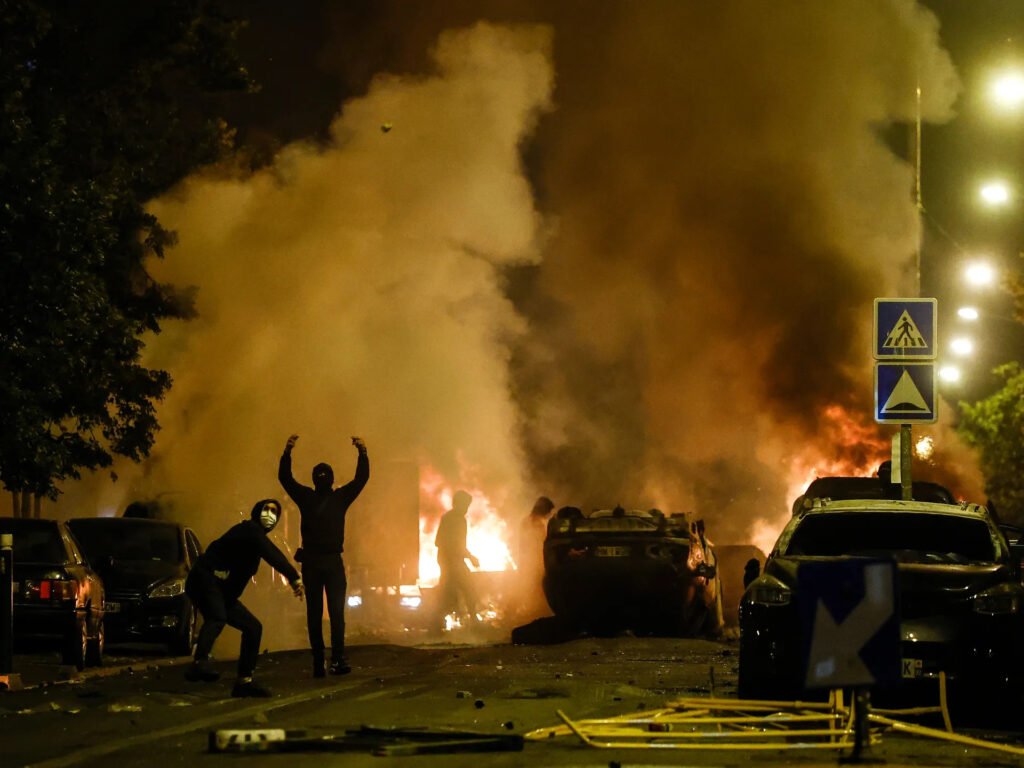French political landscape has been shaken by a series of events highlighting the deep social divisions and escalating tensions between the state, the police, and marginalized communities. The killing of Nahel, a 17-year-old of Franco-Algerian descent, by a police officer during a traffic stop in Nanterre, has sparked widespread protests, riots, and violent clashes across France. This tragic incident has brought to light the simmering resentment in working-class neighborhoods, especially among minorities, who have long felt the weight of systemic discrimination, police brutality, and economic hardship.
The nationwide unrest is reminiscent of the 2005 riots, which erupted under similar circumstances following the deaths of two teenagers fleeing the police. Yet, the 2023 revolt has been marked by a more intense and widespread reaction, fueled by years of growing distrust between the police and the communities they are supposed to serve. While the killing of Nahel was the spark, the deeper causes of the unrest lie in the systemic issues plaguing French society—persistent racial profiling, police violence, and the socio-economic marginalization of minority communities.
Despite initial condemnations from President Emmanuel Macron and Interior Minister Gérald Darmanin, the government’s response to the protests has been increasingly authoritarian. Over 45,000 police officers were deployed across the country in an attempt to quell the uprisings, and the government has refrained from addressing the core issues of police violence and systemic racism. Instead, Macron has deflected attention by attributing the unrest to external factors, such as social media and video games, while emphasizing parental responsibility for controlling young rioters. This approach, however, has failed to address the root causes of the crisis, leaving France at a critical juncture.
The 2017 law passed under former President François Hollande, which granted police broader authority to use firearms during civilian encounters, has been a focal point of criticism. Since its passage, police killings have steadily increased, with young men perceived as Arab or Black being disproportionately targeted.


This law, referred to by critics as a “permit to kill,” has become emblematic of the impunity enjoyed by French law enforcement and the erosion of trust between the state and its citizens. Calls to repeal this law have gained momentum, with left-wing political groups like La France Insoumise (LFI) leading the charge for police reform and accountability.
The far-right has seized upon the unrest to push its own agenda, with figures like Marine Le Pen calling for a nationwide state of emergency. The far-right has labeled the riots a “civilizational war” and has capitalized on the violence to galvanize support for harsher law enforcement measures and further crackdowns on immigrant communities. Far-right militias have even been spotted working alongside police in some cities, further highlighting the dangerous convergence of reactionary forces within French society.
Amid this volatile situation, the French left has struggled to offer a unified response. While some factions, like LFI, have proposed concrete measures to address the root causes of the unrest—such as police reform, the creation of a “truth and justice” commission, and significant investments in under-resourced working-class neighborhoods—other parts of the left, including the trade union movement, have remained hesitant or outright condemning of the riots. The CGT, France’s largest labor union, has issued statements calling for calm and proposing reforms to the police force but stopping short of endorsing the more radical demands for systemic overhaul.
The riots have laid bare the inadequacies of the French political establishment in addressing the deep-seated grievances of marginalized communities. The government’s refusal to acknowledge the systemic nature of the problem, coupled with its reliance on heavy-handed policing, has only deepened the sense of alienation felt by many in France’s poorest neighborhoods. As the country grapples with rising inflation, unemployment, and economic inequality, the failure to address these social fractures risks further destabilizing the nation.
In conclusion, the events of July 2023 in France represent a critical moment for the country’s future. The killing of Nahel and the subsequent riots have exposed the deep divisions within French society and the urgent need for systemic change. If the government continues to rely on repression and fails to engage with the legitimate grievances of its citizens, France risks sliding further into unrest and polarization. The challenge for the French left and progressive forces is to seize this moment to build a more inclusive, just, and equitable society—one that addresses the root causes of inequality and ensures that all citizens, regardless of their background, are treated with dignity and respect.


